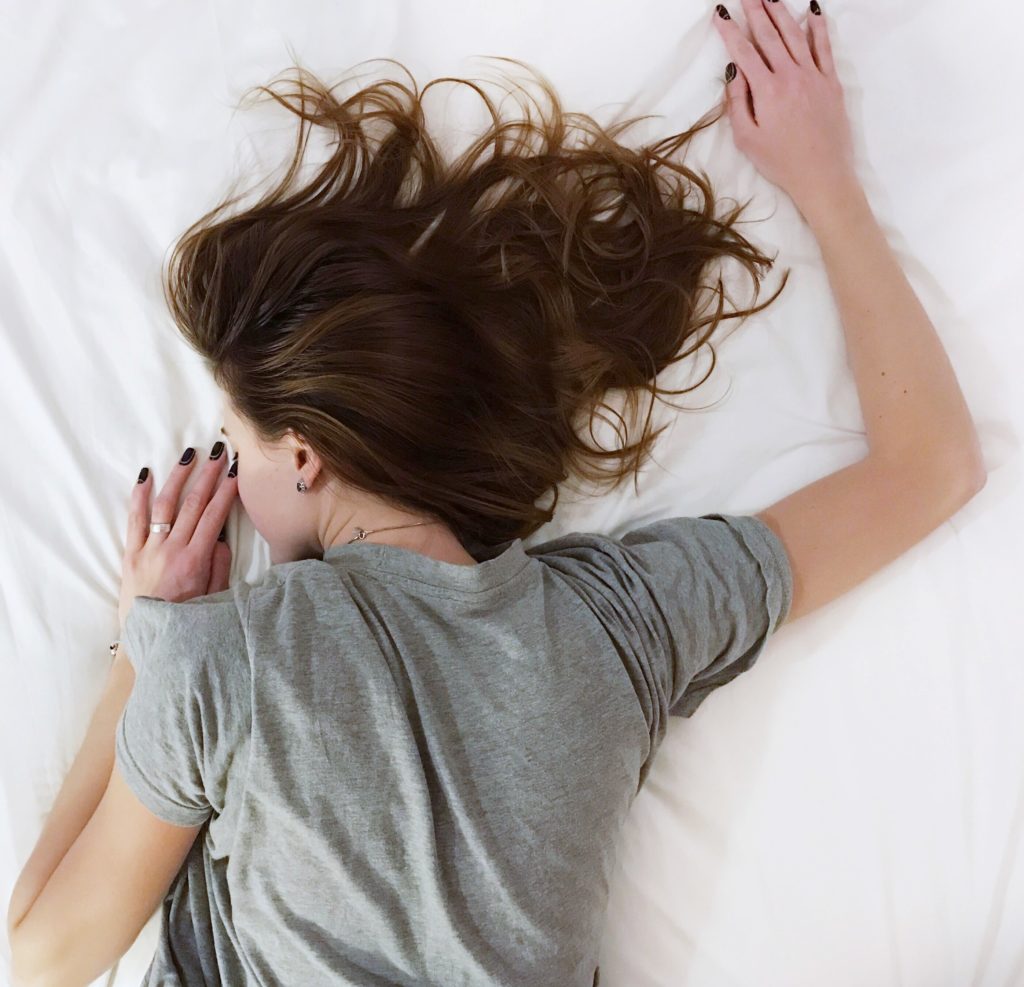Sleep

Sleep quality and quantity is an important component of the biochemical balance that promotes health. Sleep affects your ability to focus, motivation, mood, sense of wellbeing, memory, and daytime wakefulness and how you feel at wake up, 7-9 hours restful sleep is considered optimal. What you do during your wake up period affects your sleep, therefore it is subject to many aspects of lifestyle. Changes needed to improve sleep be addressed first with any chronic illness, unless pain is involved. Sleep not only serves an essential restorative function for the brain but also has been linked to an increased risk factor for diabetes, obesity and insulin resistance (a pre-diabetic indicator). J Broussard PhD, etal. “Impact of sleep disturbances on adipocyte function and lipid metabolism”. Best Pract Res Clin Endocrinol Metab. May 2010.
Your sleepiness at bed time and wakefulness in the morning, sleep-wake cycle is a product of the circadian (daily) rhythm between cortisol which initiates wake up and melatonin which initiates sleep. Other hormones such as adrenaline and noradrenaline support wakefulness and focus and adenosine which builds up during the day to promote sleepiness. Coffee blocks adenosine receptors to reduce sleepiness.. Your internal clock is programmed for you to sleep in blocks of 6-10 hours. This clock is governed by sunlight. The amount of light your light sensing retinal cells receive through a window is reduced by 50%. That is why getting outside as early as possible will be helpful. According to Andrew Huberman PhD, a Stanford University professor and researcher in neurobiology and opthamology, the effect of light on your eyes sets the clock for this rhythm. The light sensitive cells on the back of the retina are actually brain cells, they have nothing to do with sight.. Early morning exposure to sunlight, within 1 hour of waking, starts the clock for the new day. All organs have different daily rhythms which are influenced by the sleep wake cycle. It is fundamental for health and wellness as it relates to sleep, immunity, metabolism and mood. 2-10 minutes of early morning sunlight exposure when combined with walking and side to side eye movement stimulates what Dr. Huberman calls optic flow. This sends information to the brain which quiets the amygdala, your emotional center, to decrease fear and anxiety by increasing dopamine , the feel good chemical, and elevate your mood.
Cortisol, the stress hormone, peaks shortly after waking, the cortisol pulse or the cortisol awakening response, and decreases throughout the day. Having your cortisol pulse occur later in the day is linked to depression, anxiety and elevated blood pressure. Melatonin increases during the day peaking at bedtime, about 14-16 hours later. The blue light emitted by electronic devices (cell phones, computers and televisions) can reset your internal clock and disrupt you from having restful sleep. Stressors such as: obstructive sleep apnea, toxins, anxiety, excessive blood sugar drops can increase cortisol levels during yoursleep period and decrease your ability to sleep. Mineral imbalances such as low magnesium and zinc, high copper levels, an acidic pH, see my blog, and alcohol consumption may reduce sleep quality. A nutritionally dense diet is important to support healthy sleep. See my blog on diet and digestion. Exercising earlier in the day and eating in a 8-10 hour window with the last meal earlier in the evening will promote better sleep.It is important to remember that light and food is information for your body. In other words. anything that you ingest can affect your sleep and most every compound will have some effect on your biology. Early afternoon naps or a guided meditation can be beneficial for some people. You have to listen to your body inorder to feel refreshed..
There are ways to improve sleep. Practice sleep hygiene by eliminating sources of evening bright light, lowering bedroom temperature and avoiding electric media 1 hour before bed time or between the hours of 11:00 PM and 4:00 AM . The negative effect of night light can be mitigated by exposing your eyes to evening sunlight. This sunlight is lower on the horizon and has a more red spectrum, which the light sensitive retinal cells signal that bedtime drawing near. Your eyes are more sensitive to light during the evening and less sensitive to light during the day, therefore your retinal sensitivity to light increases as the day progresses. Using dimmer indoor light that is redder in spectrum not overhead in the evening can be helpful .Try having a regular bedtime and rising time to get about 8 hours sleep. The 60 minutes prior to bedtime can go as follows: relax with a warm Epsom salt soaking bath with a few drops of Lavender essential oil for 20 minutes or drink a banana tea (!/2 banana with peel in 3 cups of water. This will provide magnesium in which most people are deficient.. You can also supplement with magnesium threonate 3-4 hundred milligrams and or L-theanine 1-2 hundred milligrams 30-60 minutes before bed. Tart cherry juice before bedtime can also be helpful.. Afterwards try a mental relaxation technique such as: counting backwards from 300 by 3s and taking slow diaphragmatic breaths, deep breathing while focusing your thoughts on daily aspects of gratitude or using other meditation or self hypnosis techniques. See my blog for more information.on breathing. Supplementation with melatonin can have some drawbacks. It can reduce your ability to produce your own and it can be difficult to balance hormones. Melatonin will not help you stay asleep. I recommend to use It as a last resort, if you have difficulty falling asleep.
James Brent DDS
Resources:
- Huberman Lab podcast on sleep. Link: https://hubermanlab.libsyn.com/master-your-sleep-be-more-alert-when-awake-episode-2
- Reverihealth.com, Alexa app for self hypnosis to improve sleep: https://reverihealth.com/sleepphone
- Matt Walker “Why We Sleep” https://www.researchgate.net/publication/322724321_Why_We_Sleep_The_New_Science_of_Sleep_and_Dreams_by_Matthew_Walker_PhD_Scriber_An_Imprint_of_Si
- Satchin Panda, PhD, “The Circadian Code”; Rodale Books, 2020
